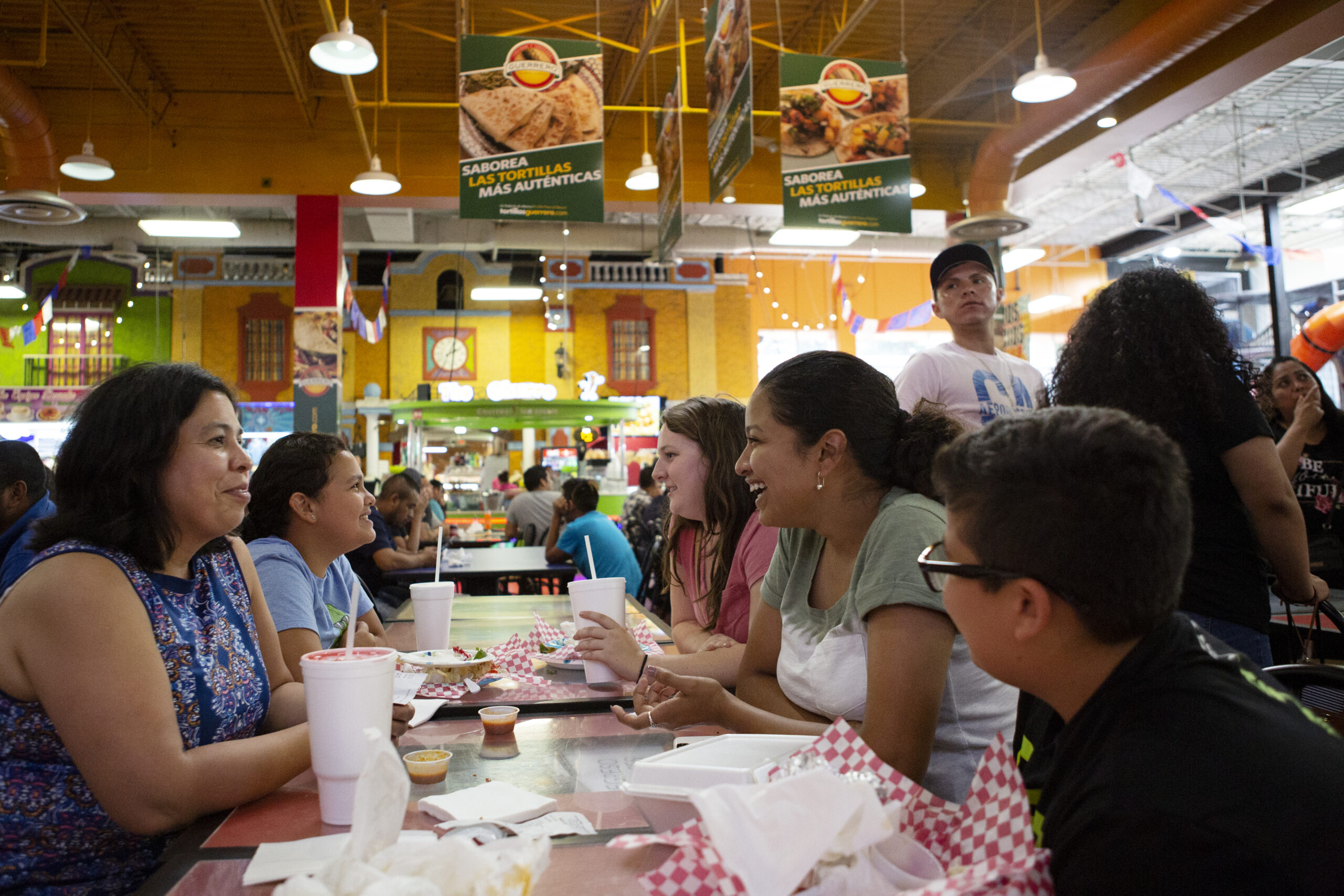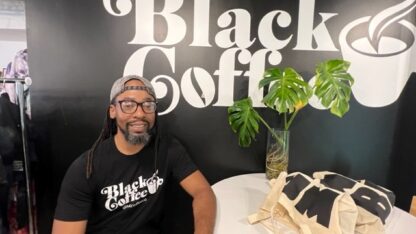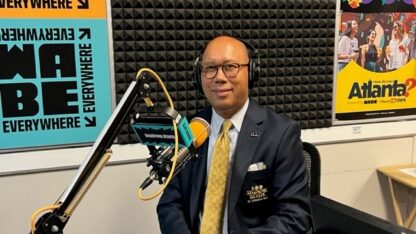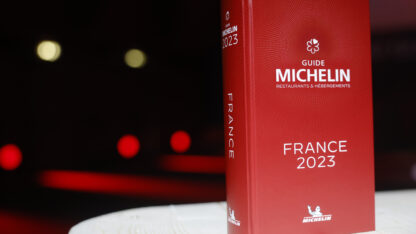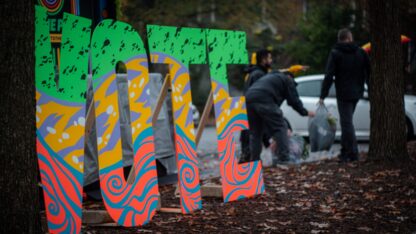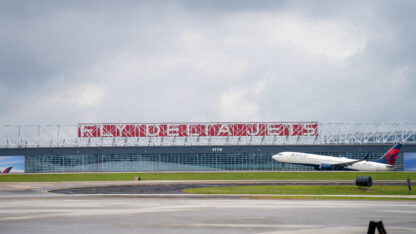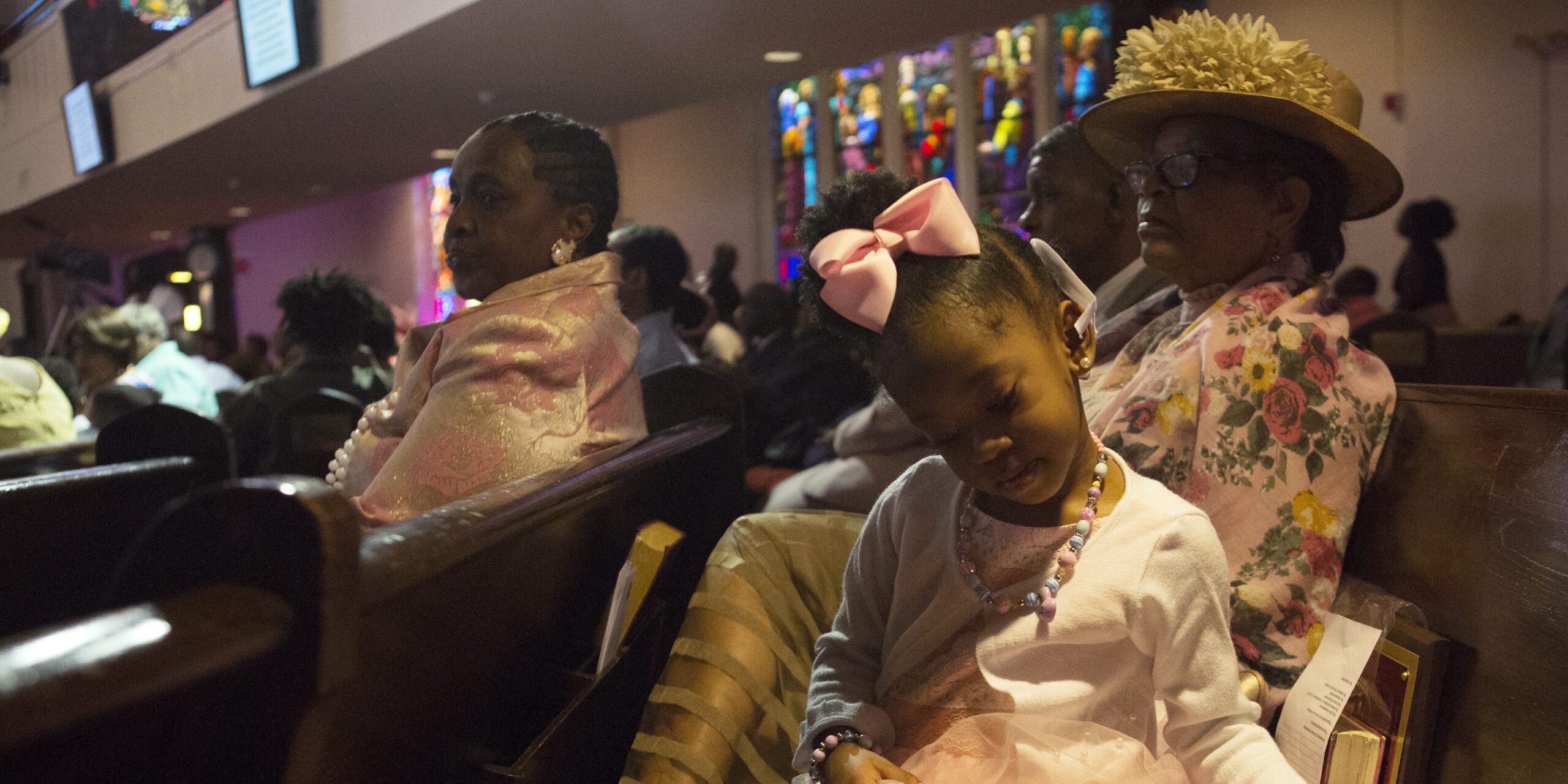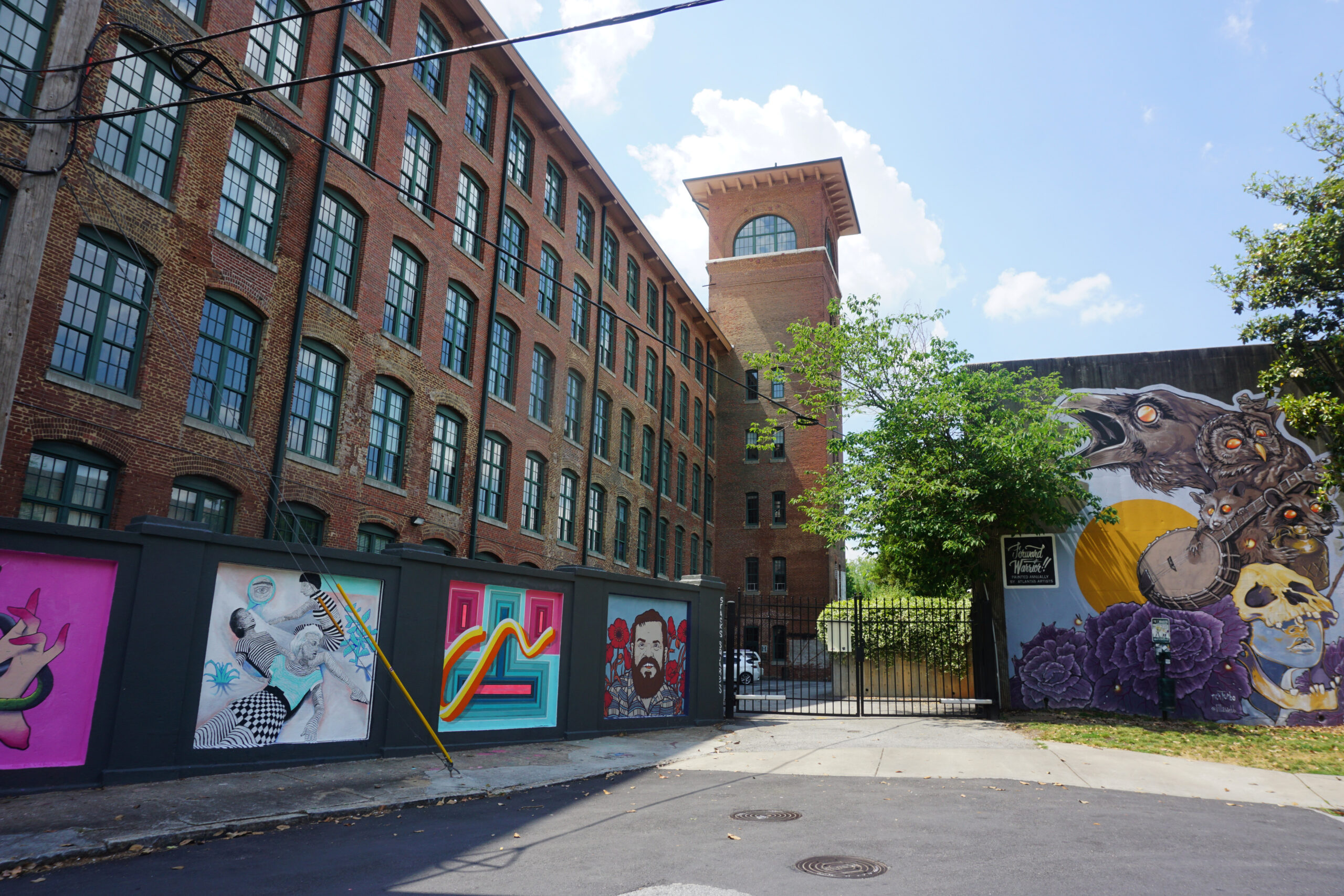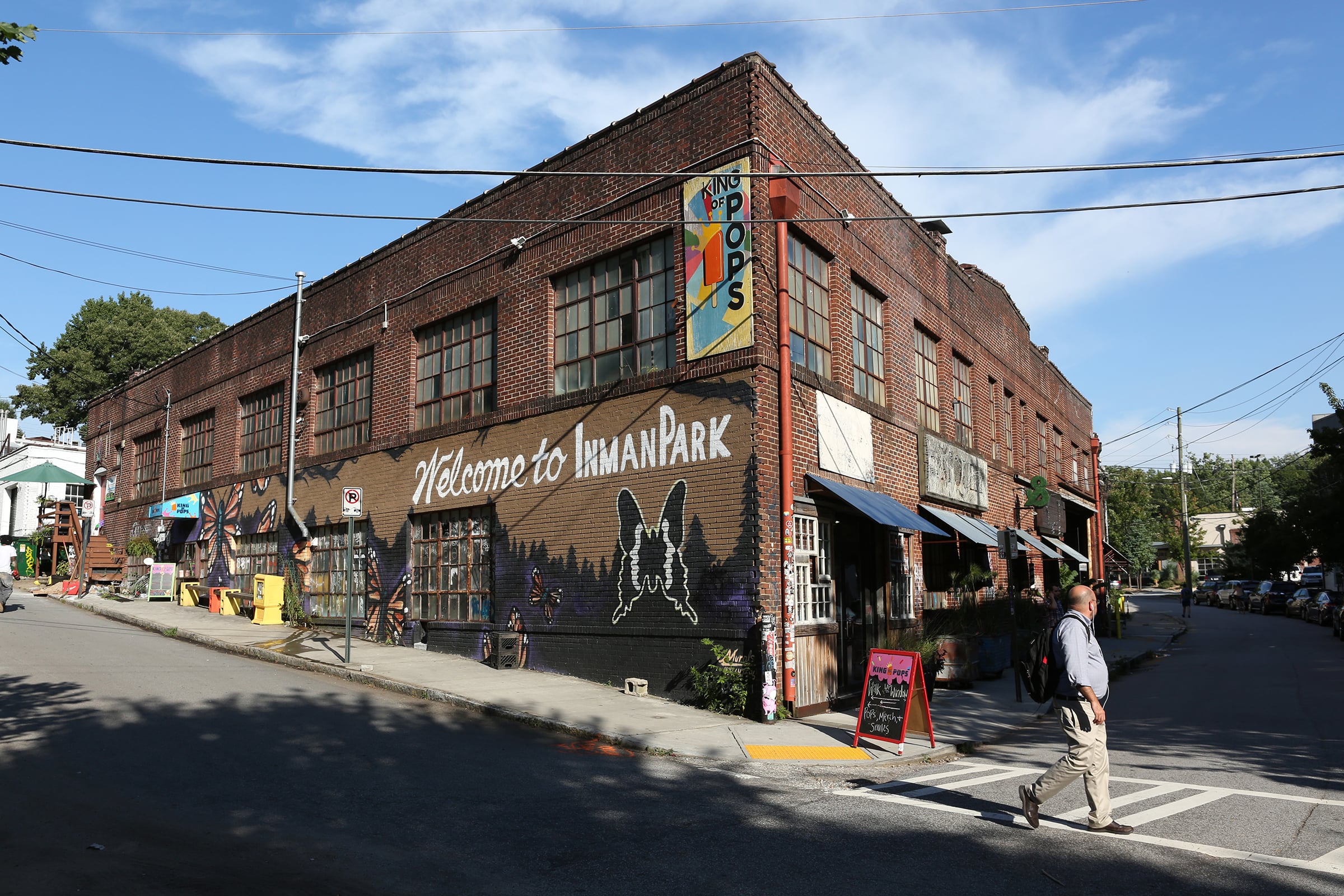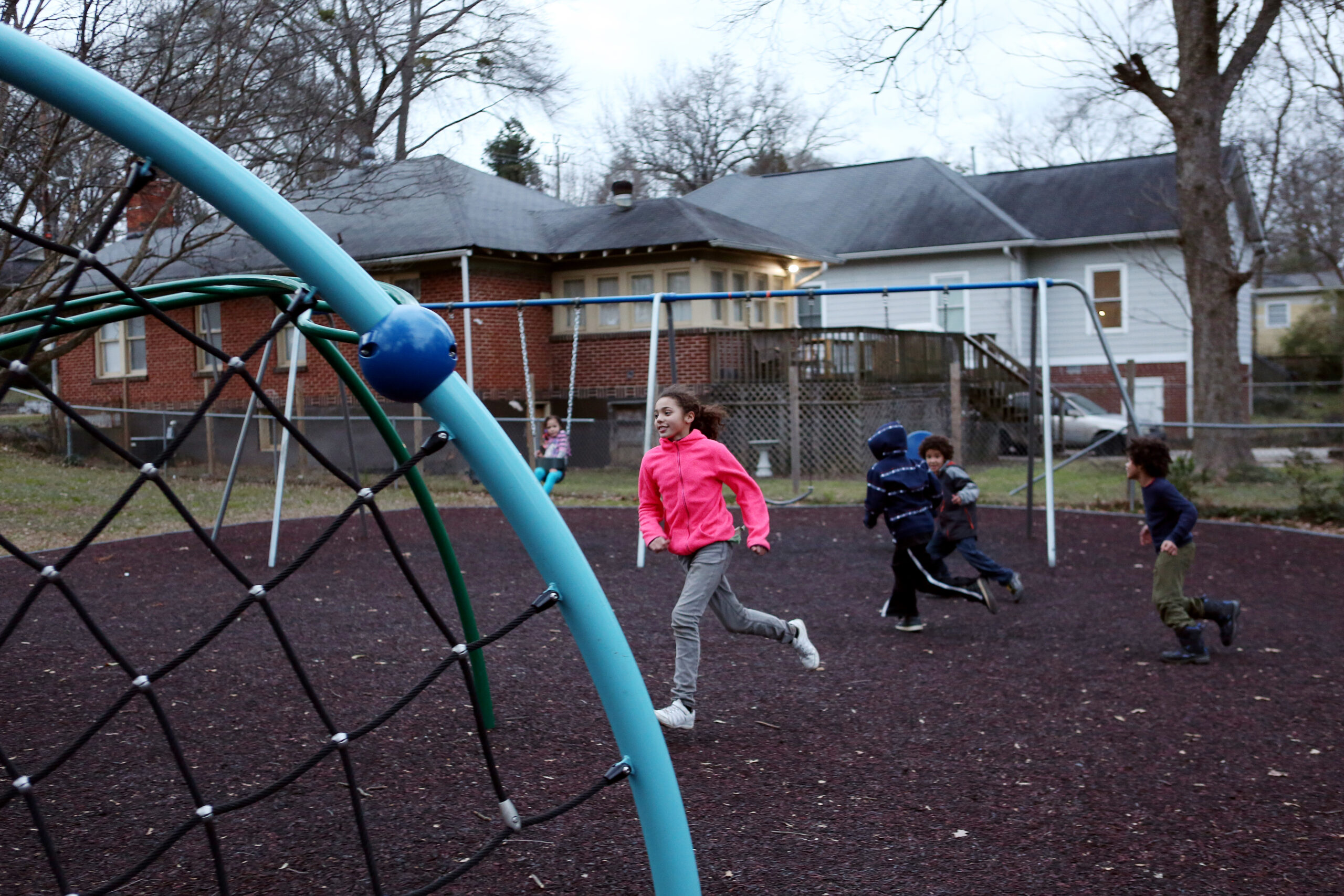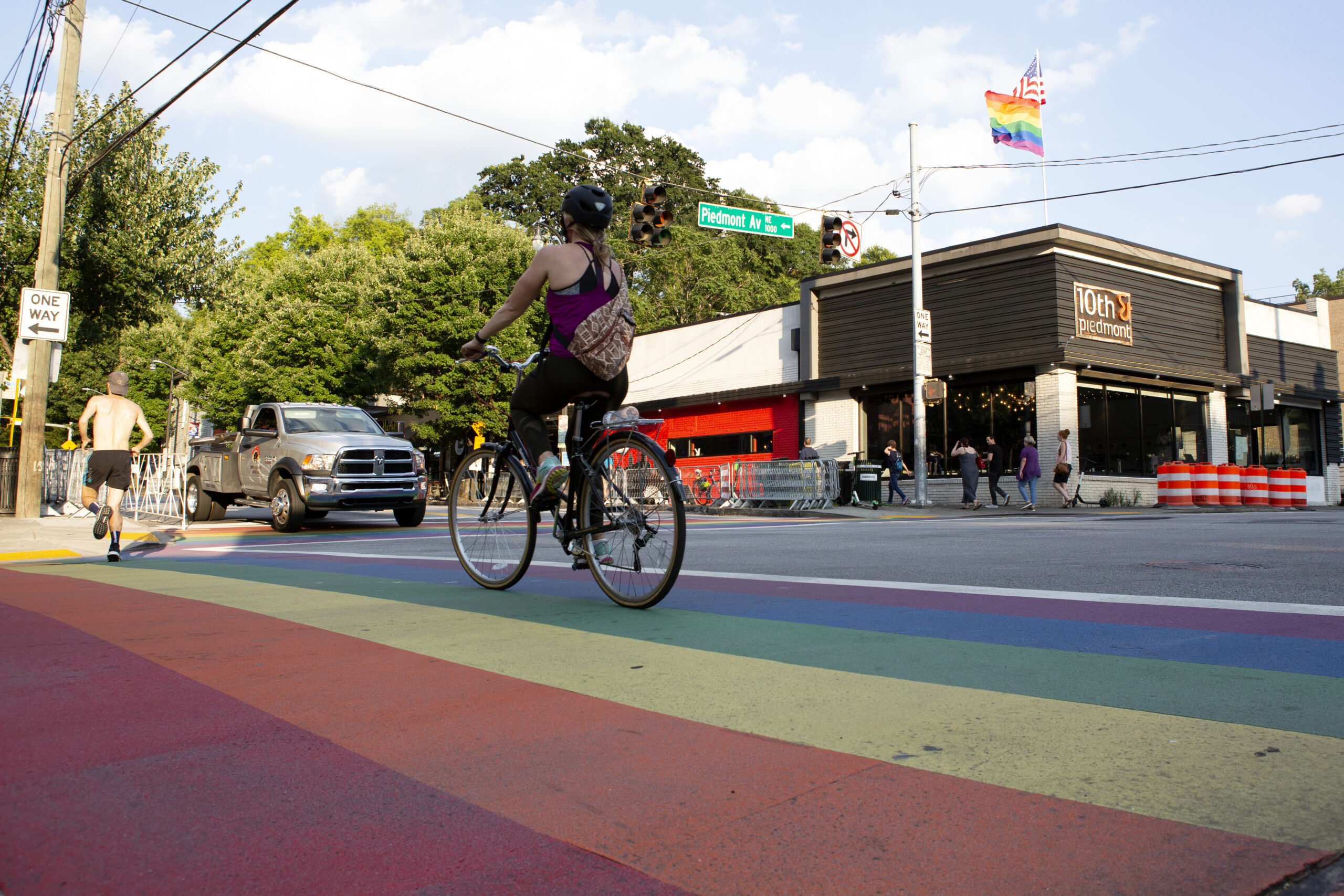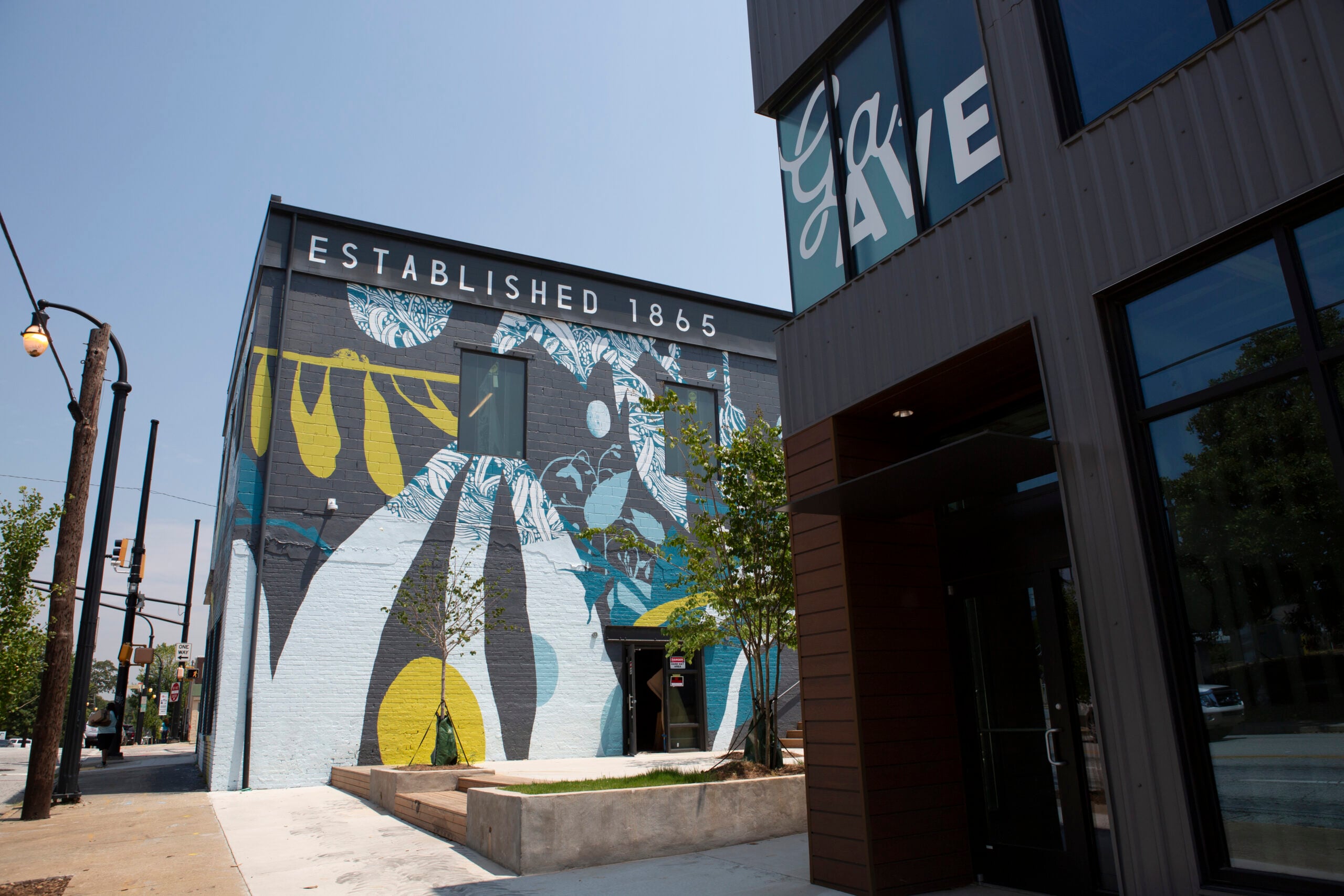Inside Plaza Fiesta, local merchants sell an array of goods ranging from ornate Quinceañera dresses to Mexican Chicharrones snacks. The shopping complex along Buford Highway attracts millions of visitors a year.
Originally slated to be a Kroger, Plaza Fiesta has come to embody the multi-generational, multicultural community that Buford Highway is known for.
The decor is reflective of Mexican culture, with pastel-colored stalls that resemble outdoor storefronts and banners hanging from the ceiling in the colors of Mexico’s flag.
The marketplace, which opened in 1999, was modeled after mercados — or markets — found in Mexico, said Julio Penaranda, the former general manager of Plaza Fiesta.
“A lot of folks can’t travel to Mexico. So the only way that they can show their children how it was to grow up in Mexico … is to come out here,” Penaranda said.

It was this vibrant community that first caught the eye of Marian Liou, who started the Instagram “We Love BuHi” to showcase the culture and history of the corridor, which runs from Buckhead to Buford.
It started as a “personal photo journal” to give followers a peek inside the area – from a Ferris wheel seat above Plaza Fiesta to a Tai Chi class – she sought to show off the multifaceted community.
“[Buford Highway is] described as being the nondescript suburban sprawl. I think more people are coming to see that it is a beautiful place that it is full of beautiful people with beautiful stories,” Liou said.
Perhaps more than anything, Buford Highway is known for its food scene, ranging from the nationally acclaimed Vietnamese bánh mì sandwiches at Lee’s Bakery to sweet churros at the renowned Taco Veloz.
“Food is a great way to bring people into the [Buford Highway] community and a way to build connection too,” said Liou, who has lived along Buford Highway since 2014.
Today, the organization that Liou founded has become a nonprofit that includes an oral history project sharing locals stories and a path with murals that reflects the vibrant culture inside of the community.
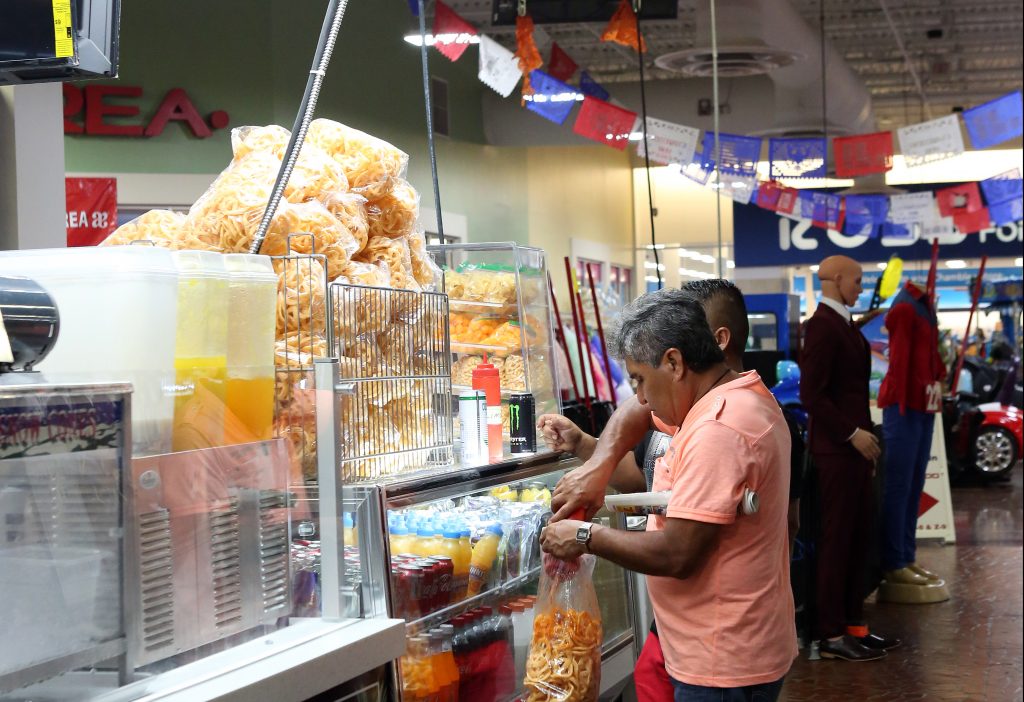
She is one of themore than 28,000 people living along the highway that stretches more than 30 miles through Fulton, DeKalb and Gwinnett counties.
While there are no formal boundaries separating the community from neighboring cities, its character stretches from Interstate 85 to the south and Interstate 285 to the north.
Riding down Buford Highway, you’ll find a mix of shops bearing names in many languages, from Korean to Spanish. The community lies within cities that have rich diversity, such as Doraville, which has a population of 14.4 percent Asian and 55.3 percent Hispanic or Latino, according to a 2017 estimate by theAmerican Community Survey.
“I think many people from many different places around the world have found a home, have made a home and created a new home for themselves,” Liou said.
While working on “We Love BuHi” since 2015, Liou said she has reconnected with her heritage. She was born in northern California, but her parents are from Taiwan and her grandparents are from mainland China.
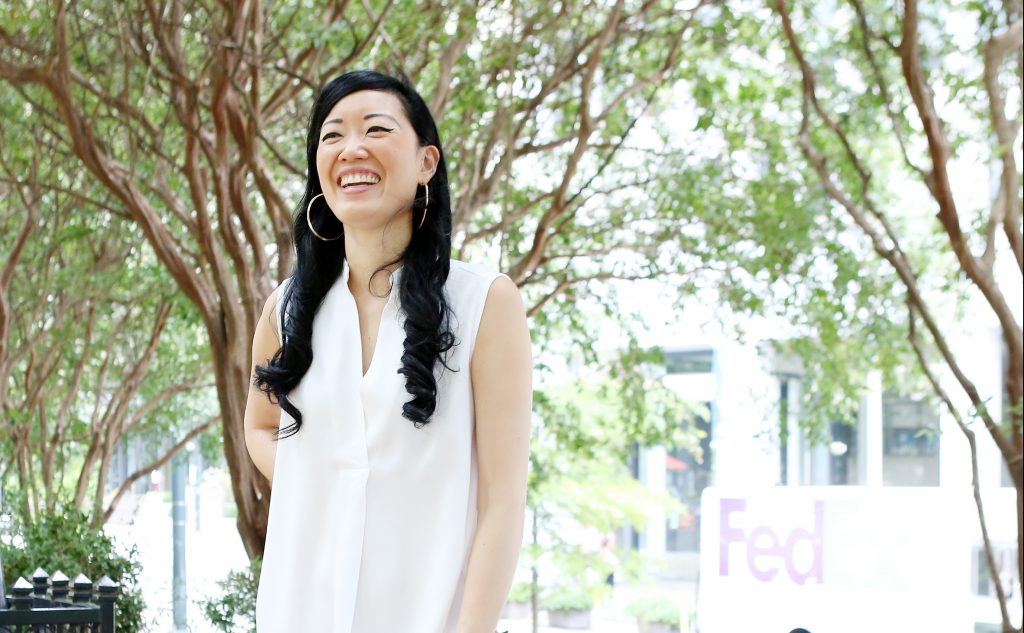
Seeing the sign forChef Liu boldly written in capital green letters above the Chinese restaurant, which used to be located in Pinetree Plaza, sparked a sense of pride within her.
“I just thought that [the Chef Liu signage] was so beautiful. That I was questioning why for so long I had been uncomfortable with my own last name,” Liou said. “But then I was like, ‘You know what. Here is my last name. It is beautiful and I am taking it back’ … On Buford Highway, different is beautiful.”
Even though Liou stepped down in June as the executive director of “We Love BuHi” to work for the Atlanta Regional Commission, she still hopes that the spirit of the community stays alive.
“There are so many stories on Buford Highway,” Liou said. “The more that people share their experiences growing up there, living there, working there, I think that expands our understanding of ourselves. It expands our understanding of Atlanta and it makes it richer and deeper.”
Entrepreneurialism Hub
The highway began as a federal Works Progress Administration project in the 1930s as a way to make it easier to travel from north Atlanta to the countryside near the Buford Dam, said Timothy Crimmins, professor and director of the Center for Neighborhood and Metropolitan Studies at Georgia State University.
By the 1960s, the area became a place for suburban development and apartment buildings started to pop up into the area, Crimmins said. It attracted young people to the area for their affordable rent and amenities, such as swimming pools.
Around this time, Eddie Benedict Sr. and his family immigrated to the community from Cuba with just “the clothes on their backs.” He had a passion for cooking, and by the late ‘70s, he told his wife Debbie that he wanted to open a sandwich shop in Atlanta.
Within 30 days, he made that dream a reality when he founded theHavana Sandwich Shop that still sits on Buford Highway today.
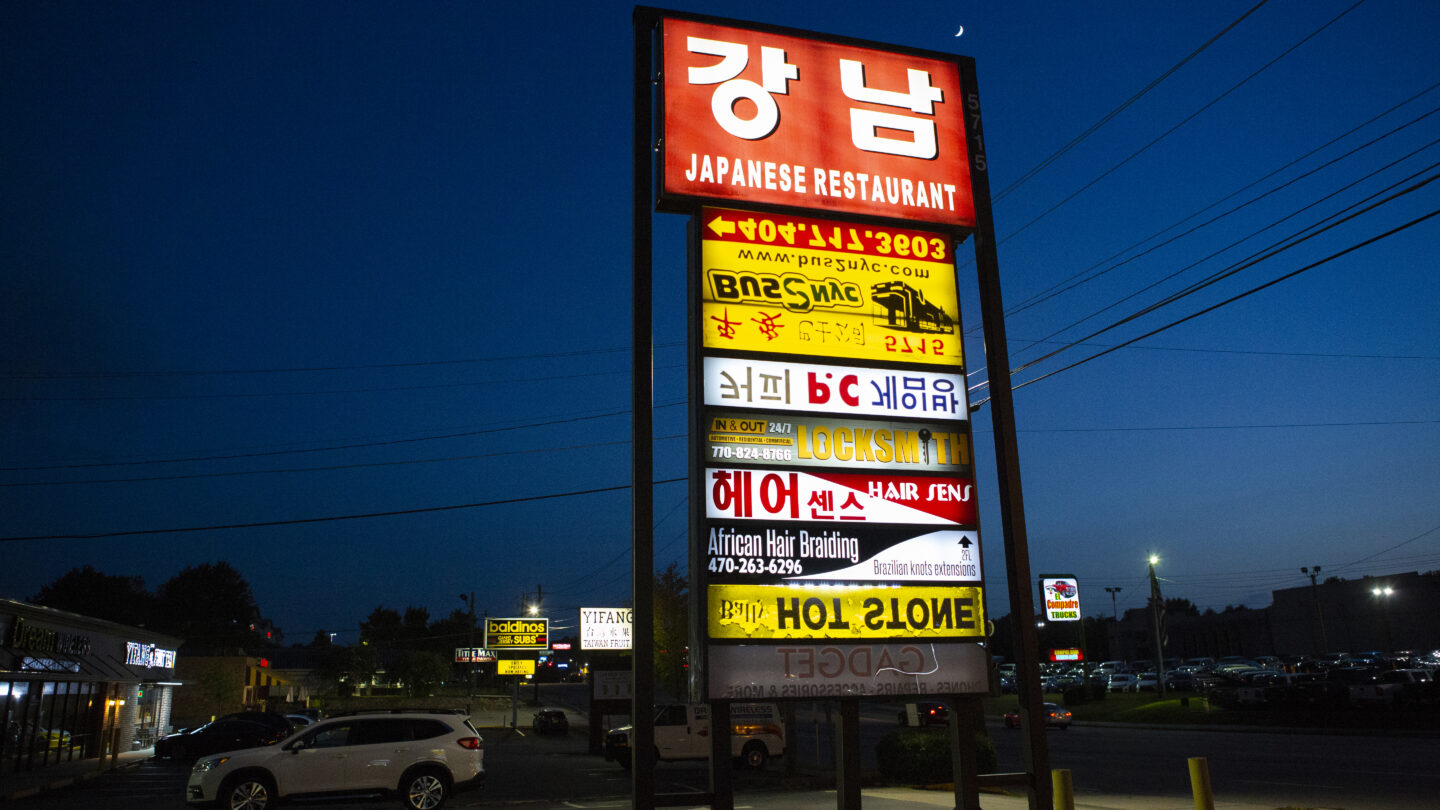
The yellow building with green palm trees has been family owned and operated since 1976, and theSouthern Foodways Alliance recognizes the business as one of the first immigrant-owned shops in the area.
Debbie Benedit said their sales have been increasing since they opened.
Their secret to success could be due to the fact that what’s inside their Cuban sandwiches hasn’t changed during the 43 years they’ve been in business. Even after Eddie’s death, the family has continued to carry on.
“The very first day we opened, we put in the cash register may be a $100. But we sold the sandwiches for $1. The next day we sold $150,” Debbie Benedit said. “It [sales] went up and up and up.”
Despite a fire in 2008, Havana Sandwich Shop isn’t going anywhere, because Debbie Benedit said, “Havana was born on the highway.”
In the ‘80s and ‘90s, the inexpensive price tags of the now aging apartment rentals and word of mouth attracted families emigrating from Hispanic and Asian countries, Crimmins said.
“It appears that you’ve had a group of people locate there because of family and community connections,” he said. “What you will find in the immigrant neighborhoods, generally, is a set of family or local community connections that tie back to the country.”
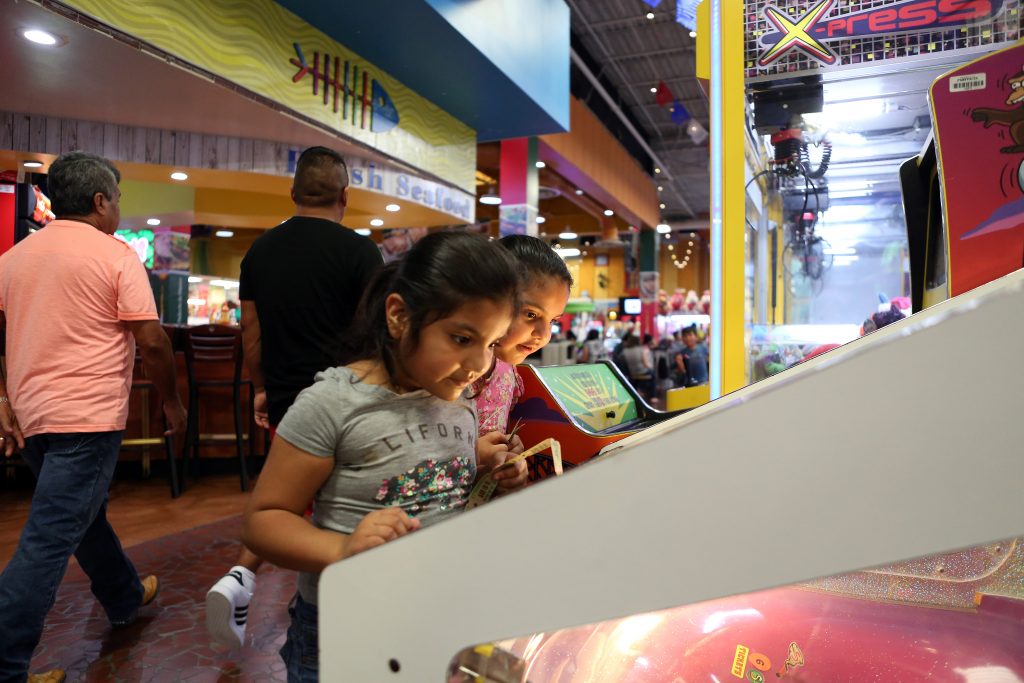
By 2013, the population on Buford Highway was composed of: 48.7 percent Hispanic, 33.5 percent White, 11.9 percent African-American and 4.1 percent Asian, according toa study conducted by DeKalb County.
After the Benedit family’s sandwich shop, immigrant-owned businesses, such markets, bakeries and bookstores became the norm along the highway.
Around this same time, nonprofit organizations aimed at community building began to emerge along the highway, such as theCenter For Pan Asian Community Services in 1980 and theLatin American Association in the early 1990s.
Aixa Pascual started working for the LAA, because she wanted to have a chance to work with Latino communities in Atlanta. The nonprofit, founded in 1972, has a mission to “empower Latinos to adapt, integrate and thrive.”
The organization has been working to empower members of the Latina community that want to start their own business through LAA’s entrepreneurship program, Pascual, the senior lead for advocacy, said. The women who go through the classes end with presenting their business plan after about 40 hours of learning.
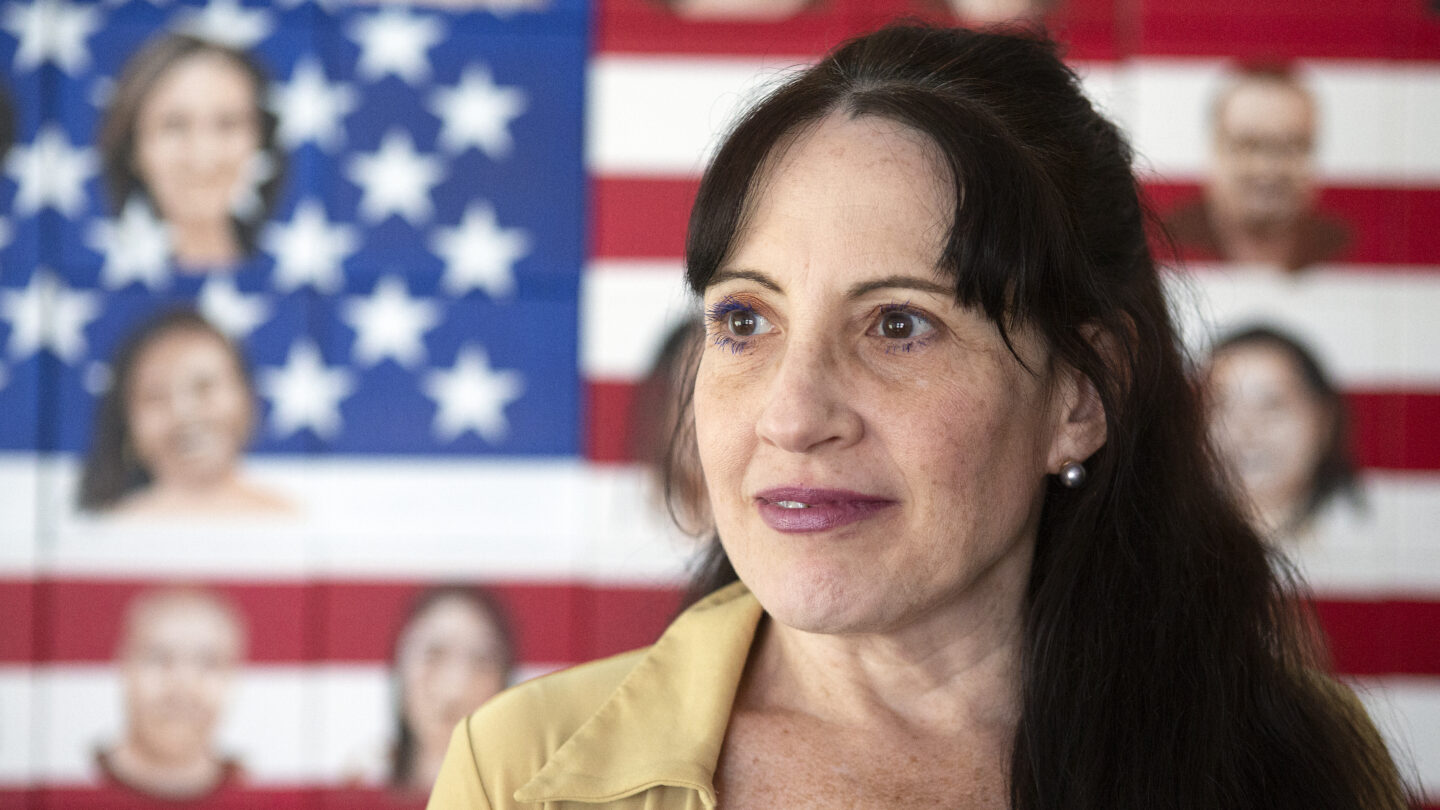
“We’re empowering them so they can start their own business. They don’t have to rely on a wage or a job or a part-time position and they can just make their own hours,” Pascual said.
Buford Highway follows a nationwide trend of immigrant entrepreneurialism. More than 50 percent of companies were founded by immigrants from 1996 to 2011, according toInc. magazine.
A Source For Traditions
Within Plaza Fiesta, generational bonding happens among family members who visit the shopping center, former general manager Julio Penaranda said.
“What these parents do [is] they bring them down here and they say, ‘Look here’s a fountain where I used to grow up. In my town there in Mexico, we used to have a fountain in the center. This is a candy that we used to eat in Mexico when I was your age,’” he said.
“So it’s a big, general bonding where Mexican children can now finally say, ‘I can experience what my parents grew up like in Mexico.’”
Two miles north of Plaza Fiesta, in the same plaza as the City Farmers Market and Vietnamese restaurant Saigon Tofu, sits Food Terminal, a restaurant that embraces native Malaysian, Indian and Chinese flavors within its recipes.
“When you’re talking about Malaysian cuisine now … it’s really a mix of some Malaysian cooking style like banana leaf … and then you add in some curry Indian sauce and then you add in some of the Chinese [flavors] like noodles and rice and [it] all just kind of comes together,” said Jane Ewe, manager at Food Terminal, which opened in 2017.
To Ewe, Buford Highway’s sense of community reminds her of where she’s from in Malaysia. She and her sisters emigrated from there to metro Atlanta in the late ‘90s.
She said that her family sought to model Food Terminal after the food courts in Malaysia and Sweet Hut Bakery & Cafe, which they also own, after the social spots found in their home country.
Some of Food Terminal’s dishes are based on family recipes, such as the Grandma Barbecue Pork Tossed Noodle. Ewe said the foods they serve help expose people to their culture.
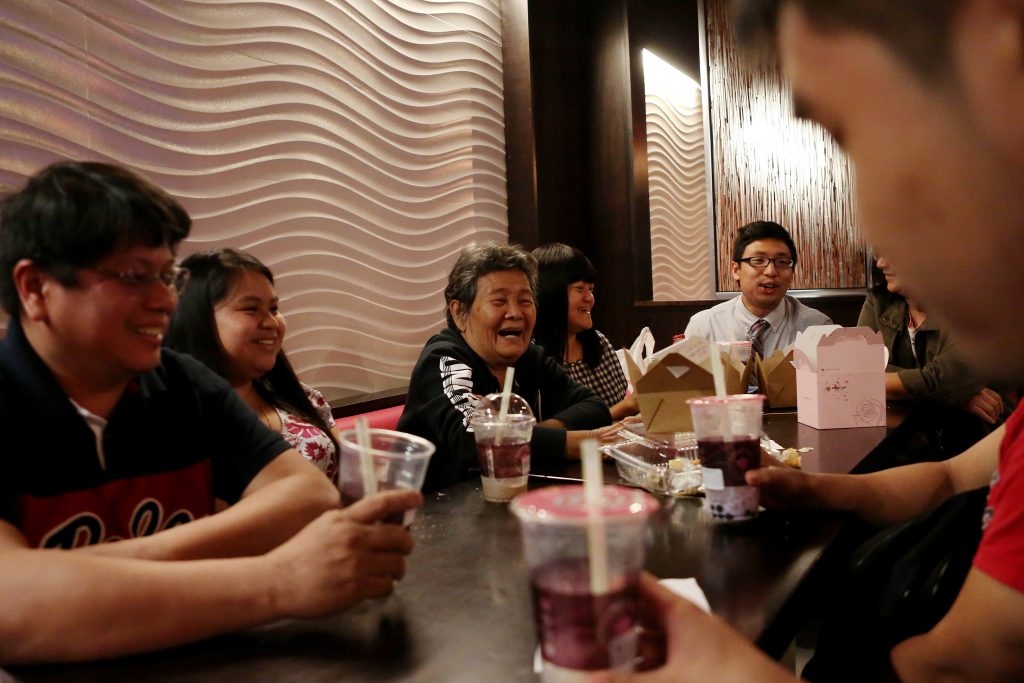
“Being able to share the food that we’ve been eating growing up, share it with people who’ve never tried it and their first reaction is ‘Oh my God I love it,’ gives us connection with a lot of the customers,” she said.
While Buford Highway has evolved over the years, Ewe said what has remained the same is its authenticity.
“Growing up here and watching it change. It’s kind of a home in itself and it doesn’t really characterize what I used to have in Malaysia. It’s kind of taken a life on its own. That in itself is the beauty of it,” she said.
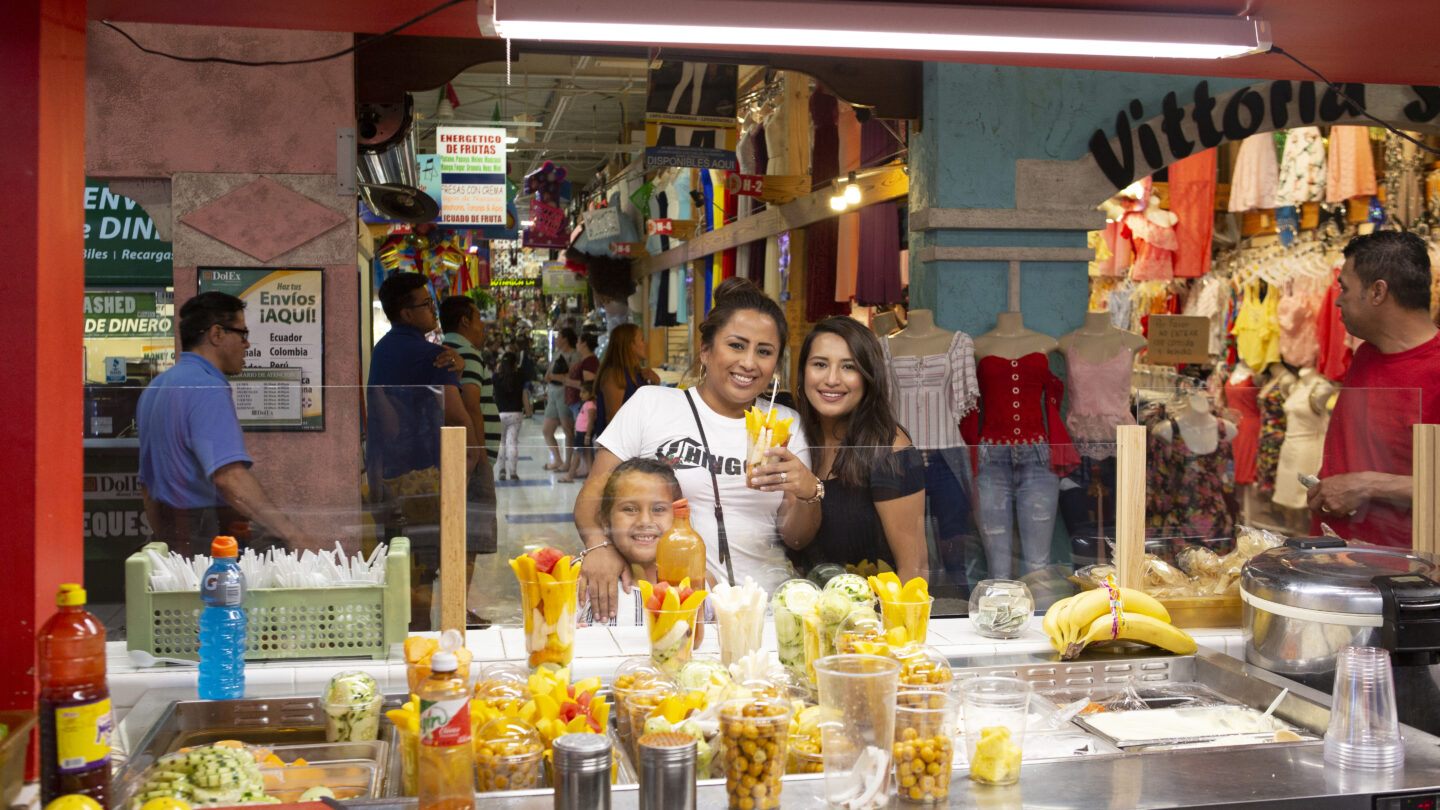
But Pascual, who grew up in San Juan, Puerto Rico, is worried that Buford Highway’s multicultural community is at risk.
She said she loves to see stores selling goods from different parts of Latin America and to hearing locals speak Spanish and other languages.
She says she feels welcome in the Buford Highway area.
It’s a place where cultures and ethnicities coexist in a harmonious manner,”
Aixa Pascual
But recently, she’s noticed more development coming into the area and a rise in apartment rental prices.
“On Buford Highway, we’re seeing the displacement of some of the populations that have been living here for two or three decades,” Pascual said.
Liou said the fears of gentrification are absolutely real. She’s noticed her rent increase by 15 percent over the past five years.
“My rent has gone from $790 to upwards of $900 for a one-bedroom apartment of Buford Highway. And I know in other places it’s gotten significantly higher than that,” she said.
Liou knows that change along Buford Highway is inevitable, but she wants the essence of the community to remain intact.
“My hope … is that this change that is occurring happens in a way that’s cognizant and respectful of the character of the area which is its diversity,” she said.
Correction: This story has been updated to reflect proper information about LAA’s mission, Aixa Pascual’s role with LAA and her status as a U.S. native. The video has been reposted to correct a misspelling in the original version.
